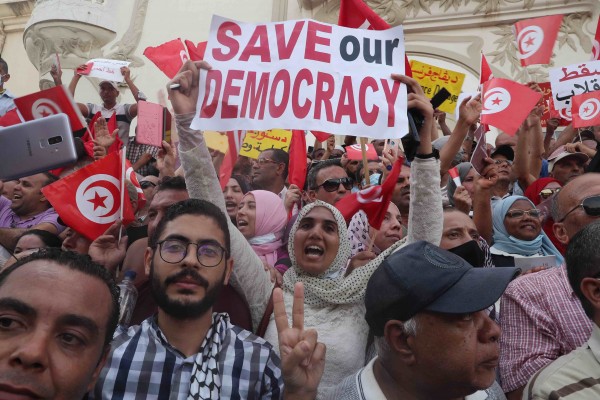A panel discussion supported by the International Press Institute (IPI) during UNESCO’s World Press Freedom Day event in Tunis, Tunisia, will look at effective ways to stop attacks against journalists and improve journalists’ safety.
The panel discussion, scheduled to take place on May 4 at 4 pm, will look at successes and failures of ongoing efforts by journalists and civil society organizations to promote journalists’ safety. It will also question the role of international governmental organizations and the international community in fostering journalists’ safety and it will hear the opinion of practicing journalists on the desirability of having an international framework setting out the principles of journalists’ safety.
The discussion will be moderated by IPI Executive Director Alison Bethel McKenzie, a 27-year veteran newspaper journalist who worked as a reporter, bureau chief, senior editor and trainer in the United States, the Bahamas and Ghana.
Panellists include:
Owais Aslam Ali, who, as secretary general of the Karachi-based Pakistan Press Foundation, will talk about the challenges of working in a country that is one of the world’s most dangerous countries for journalists, yet one where journalists have shown great courage and fought for their freedom to report on issues of public concern.
Lina Attallah, who, as managing editor of Egypt International, the English-language version of one of Egypt’s most respected newspapers, Al Masriy Al Youm, will present her experience in covering Egypt’s recent street protests and the ongoing political transition.
Sylvie Coudray, who, as chief of section for UNESCO’s Freedom of Expression Division, has been a driving force in UNESCO’s efforts to promote journalists’ safety without limiting freedom of expression.
Emmanuel Boutterin, who, as vice-president of the World Association of Community Radio Broadcasters, will talk about the challenges of ensuring the safety of journalists who report on issues that are of great importance to a community and who often operate in rural areas and with very few means at their disposal.
Nabil Jmour, who, as secretary-general of the Culture and Information Syndicate of the Tunisian Union, will bring to the discussion his experience in covering Tunisia’s Jasmine Revolution and the country’s ongoing transition, as well as efforts undertaken by local journalists’ groups to ensure their safety.
“The promotion of journalists’ safety has always been an important focus of IPI’s work,” IPI Executive Director Alison Bethel McKenzie said. “This is increasingly so as the number of journalists killed as a direct consequence of their profession has not decreased in recent years, in spite of great efforts by local and international groups and news organisations to promote journalists’ safety. I look forward to the panel discussion at UNESCO’s event in Tunis and trust that a frank exchange between journalists, government representatives and media experts will give very interesting results, which will serve to define IPI’s future strategy in this area.”
According to IPI’s Death Watch, at least 44 journalists have been killed since the beginning of 2012, most likely as a consequence of their work. Last year was the second-worst on record, with 102 journalists killed, and 2009 was the grimmest ever, with 110 deaths.
In an op-ed published in various newspapers around the world to mark World Press Freedom Day 2012, IPI condemned governments’ failure to bring the perpetrators of crimes against journalists to justice, thereby fostering a culture of impunity that encourages further attacks.
“It’s time to send a firm signal that verbal commitments, a signature on a treaty or convention here or there, a sombre condemnation of yet another journalist killing, aren’t fooling anyone anymore,” IPI said in the op-ed.


